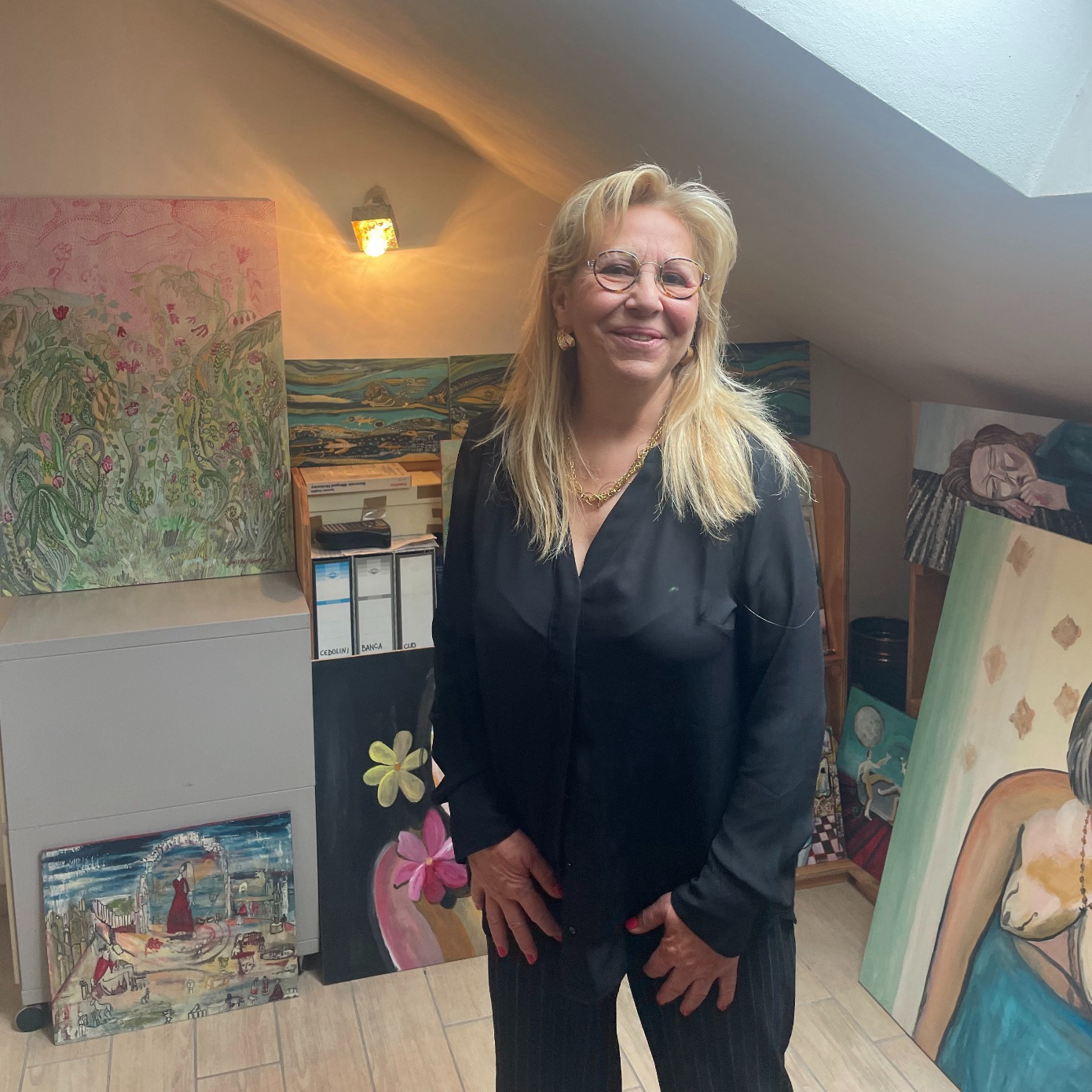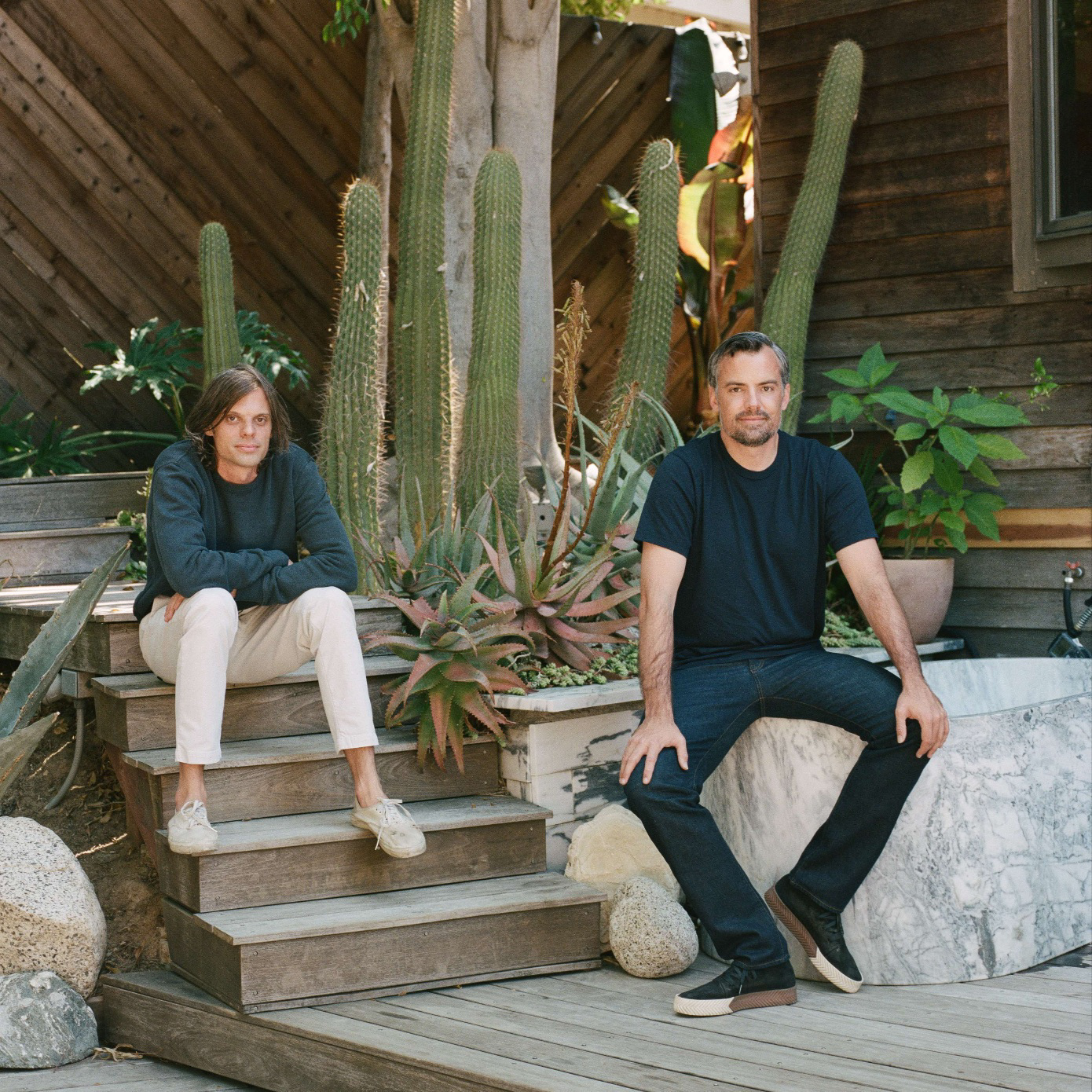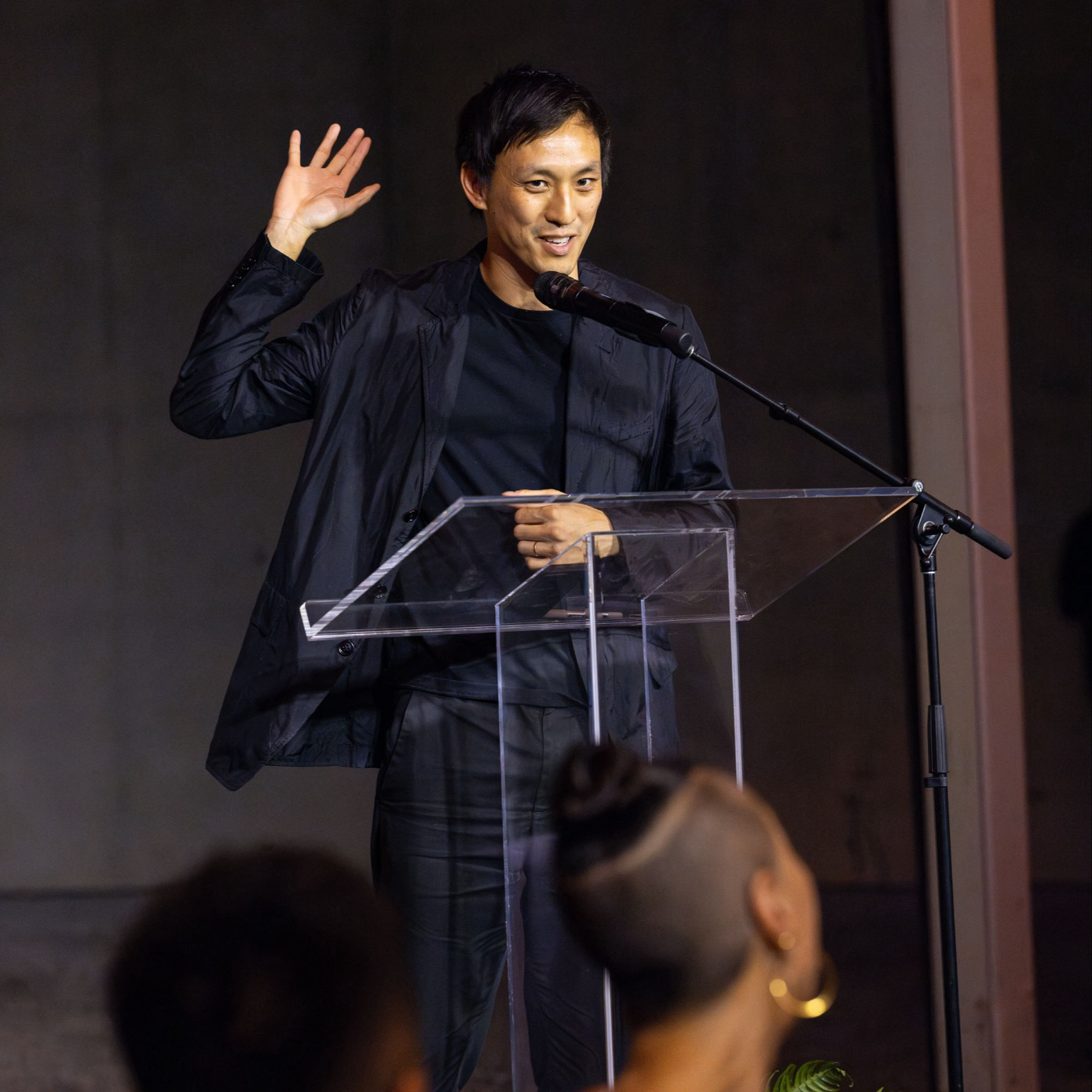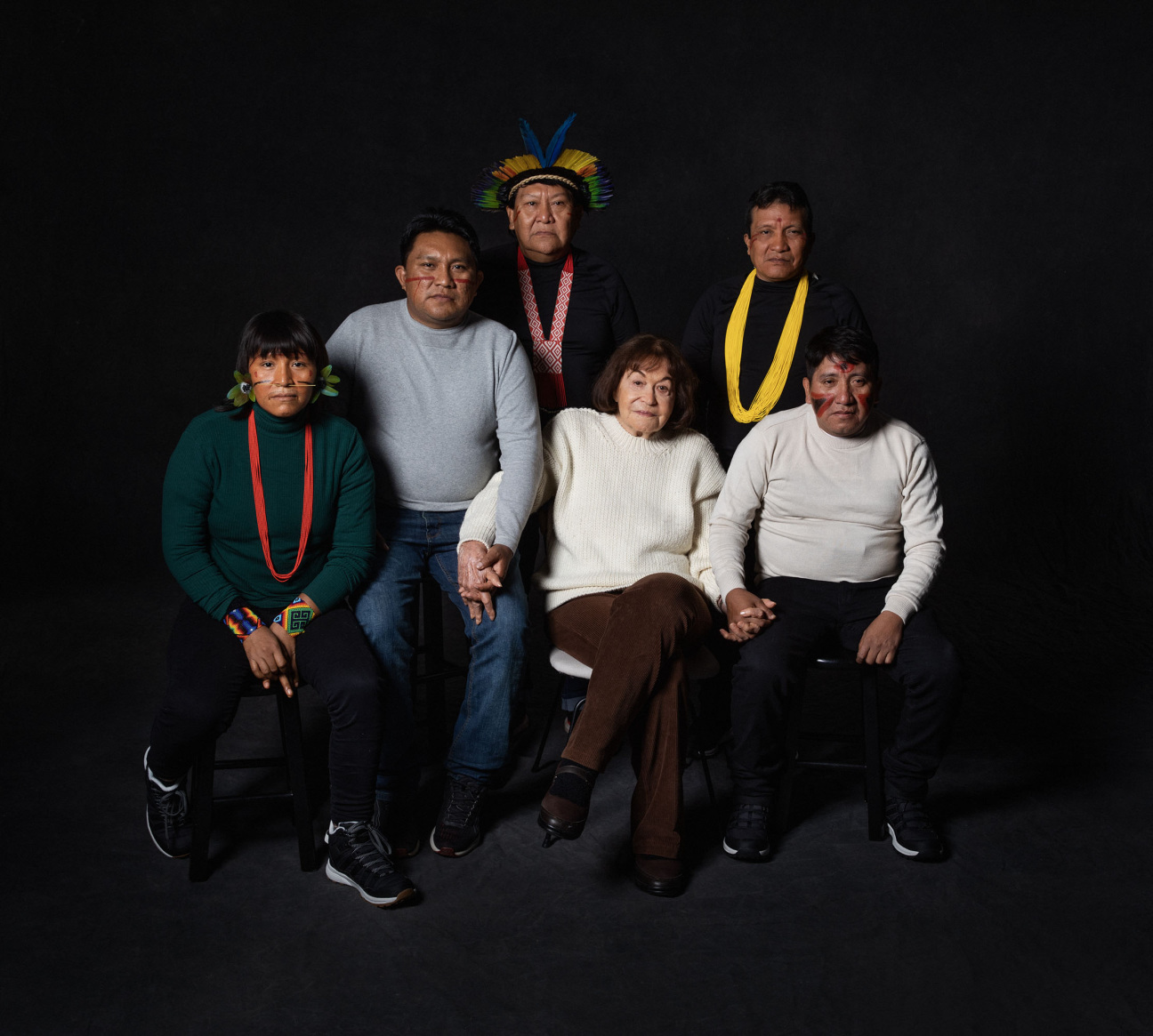
In the early 1970s, Claudia Andujar, a Swiss-born photographer who fled Europe during the Holocaust, began living with and taking pictures of the Yanomami people of the Northern Amazon. During Brazil’s military dictatorship that lasted from the ’60s through the ’80s, aggressive mining and construction projects exposed countless indigenous communities to deadly violence and disease—and what initially began as a photography project for Andujar transformed into a lifetime of dedicated activism. Presenting the culture and spiritual practices of the Yanomami to the world through photographs would become her central focus.
“If they get interested in you, in your image, in your people, they’ll respect you a little,” Yanomami shaman Davi Kaponowa recalls Andujar explaining many decades ago. “Claudia comes to warn us—to warn me,” he adds, “so I can learn to defend myself.”
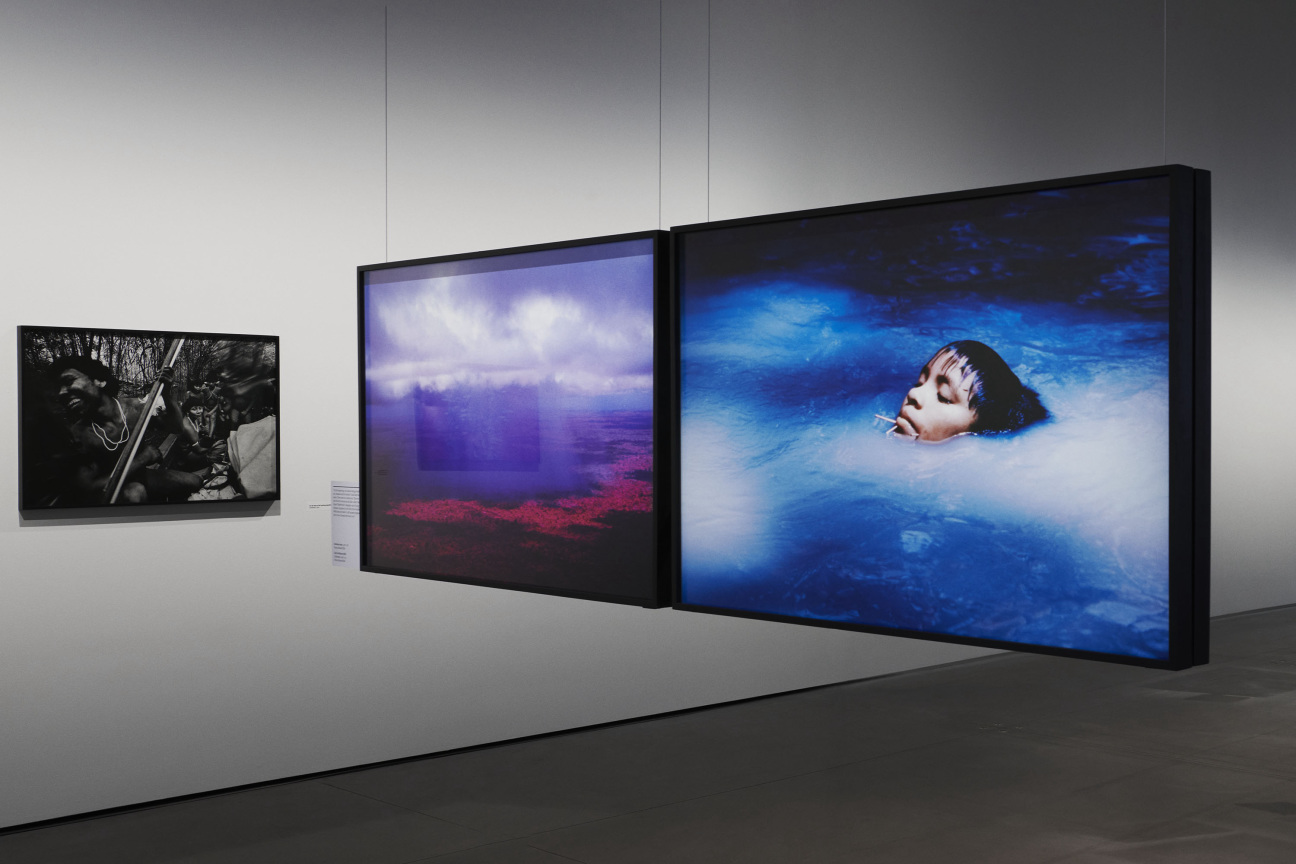
“The Yanomami Struggle,” a new exhibition at The Shed in New York, features 200 of Andujar’s photographs alongside 80 works by Yanomami artists, a tribute to their collective and ongoing commitment to preserving the Yanomami way of life. Even as visitors streamed into the exhibition preview at the Hudson Yards art space yesterday, more than 20,000 illegal mining operations remain in the Amazon, posing a dire threat to the community’s way of life.
“I’m happy that you are here,” Andujar, 91, told those gathered. Alongside her stood Kopenawa, his son—the Yanomami leader Dario Kopenawa—and Yanomami artists Ehuana Yaira and Morzaniel Ɨramari. “It is important that we understand who the Yanomami people are, if we want them to survive.”
The traveling exhibition, curated by Thyago Nogueira, is the fruit of much collective labor, including support from the Paris-based Fondation Cartier, São Paulo’s Instituto Moreira Salles, and the NGOs Hutukara Associação Yanomami and Instituto Socioambiental—all under the close consultation of Yanomami leaders.
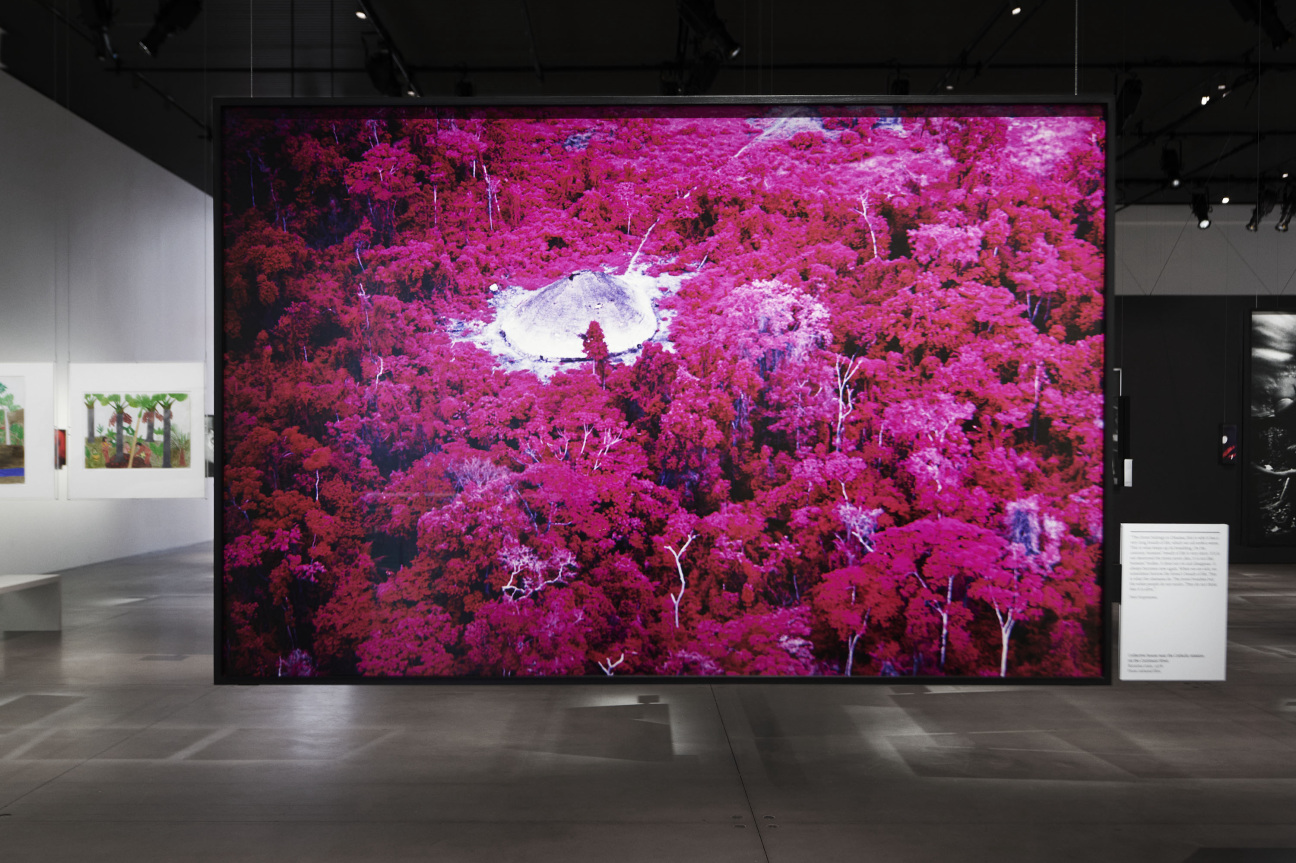
Andujar’s imagery from the ’70s presents glimpses of daily life—hunting birds, the nursing of infants—with a familial intimacy, often shrouded in the rich shadows of the forest foliage. The photographer documented the community’s spiritual practices by experimenting with long and double exposures, resulting in images that crackle with spectral streaks of light in an effort to capture the delirious, out-of-body ecstasy of ritual participation. That electricity echoes in the drawings exhibited by Yanomami artists, also dating back to the 1970s, which depict the lore and customs at the heart of their culture.
The exhibition chronicles the close relationship that Andujar forged with the community over the years, as well as the gains and backslides of half a century of activism: the 1978 formation of the Commission for the Creation of Yanomami Park (CCPY), which called for the demarcation of indigenous land; followed by the ratification of that demarcation in 1992; the persistence illegal mining in the Amazon into the 21st century; and the threat of the legislation’s reversal under former Brazilian President Jair Bolsonaro. Under Brazil’s current pro-indigenous leadership, Andujar is optimistic: “It’s perhaps the first time in a long time that somebody will help to develop the Yanomami territory,” she says. But the Yanomami’s call to action isn’t directed solely at Brazilian leadership. “The relevance of us being here in this exhibition is for you American people, you New Yorkers, to see [us],” adds Kopenawa. “You can see the struggle of our survival, and the struggle for our existence.”
“The Yanomami Struggle” is on view at The Shed through April 16. To learn more about efforts to help the Yanomami people, you can visit Hutukara Associação Yanomami or Instituto Socioambiental.

